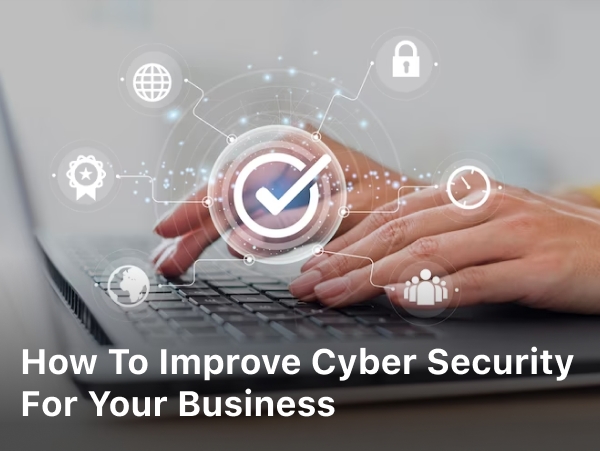Welcome to our guide on how to send an anonymous email! In today’s digital age, protecting your identity online has become increasingly important. Whether you need to share sensitive information or simply want to maintain your privacy, sending an anonymous email can help you stay secure.
In this article, we will explore various methods and tools that allow you to send emails without revealing your personal information or leaving a digital trail. By following our step-by-step instructions and implementing the recommended privacy tools, you’ll be able to communicate anonymously and protect your identity online.
So, if you’re ready to learn how to send an anonymous email and safeguard your privacy, let’s dive in!
Understanding the Need for Anonymity
When it comes to email communication, protecting your identity online is crucial. Whether you’re dealing with sensitive information, engaging in whistleblowing, or simply exerting your right to privacy, sending anonymous emails can be a vital tool.
Sending an anonymous email provides a layer of protection against potential threats, such as harassment, stalking, or identity theft. By concealing your true identity, you minimize the risk of being traced back to your personal or professional life.
Not protecting your identity online can have serious consequences. If your personal information falls into the wrong hands, it could be used for malicious purposes, compromising your privacy, reputation, and even your safety.
The Risks of Not Protecting Your Identity Online:
- Your personal information could be exploited for scams or fraud.
- You might become a target for hackers or cybercriminals.
- Unwanted emails, spam, and phishing attempts could inundate your inbox.
- Your online activities may be tracked and monitored by unauthorized individuals or organizations.
- Your confidential communications may be intercepted, compromising sensitive information.
By understanding the need for anonymity and the risks associated with not protecting your identity, you can take the necessary steps to safeguard your online privacy and security.
Using Anonymous Email Services
If you want to send an email without revealing your personal information or IP address, anonymous email services can be a valuable tool. These services allow you to maintain your privacy and protect your identity online. Whether you need to send confidential information or simply want to keep your communication anonymous, using an anonymous email service can provide the security and peace of mind you’re looking for.
With an anonymous email service, you can send emails without the fear of your personal data being exposed. These services often don’t require any personal information during sign-up and allow you to create an anonymous account. This means that your email address, name, and other identifying details will remain hidden.
When using an anonymous email service, you also have the option to choose a temporary or disposable email address. This allows you to send emails without linking them to your primary email account or identity. Disposable email addresses can be particularly useful for one-time or short-term communication needs.
Many anonymous email services also provide additional features to enhance your privacy and security. These features may include encrypted communication, SSL/TLS encryption for data in transit, and secure message storage. By using these services, you can ensure that your sensitive information remains confidential and protected.
Benefits of Using Anonymous Email Services:
- Protects your identity online
- Prevents tracking of your IP address
- Allows you to send confidential information securely
- Provides options for disposable or temporary email addresses
- Offers additional privacy and security features
When choosing an anonymous email provider, it’s essential to consider factors such as reliability, reputation, and the level of security offered. Look for providers that have a strong track record of protecting user privacy and offer robust encryption measures to safeguard your data.
Stay tuned for the following sections where we will explore important privacy tools for email communication, best practices for sending confidential emails, and additional measures you can take to ensure anonymity in your email communication.
Important Privacy Tools for Email Communication
When it comes to email communication, ensuring privacy and security is of utmost importance. In this section, we will explore some essential privacy tools that can help you protect your sensitive information and maintain secure email communications.
1. Encryption
Encryption is a crucial tool for securing email communications. By encrypting your emails, you can prevent unauthorized access to the contents of your messages. There are various encryption methods available, including end-to-end encryption, which ensures that only the intended recipient can decrypt and read the message.
2. Virtual Private Networks (VPNs)
Using a virtual private network (VPN) can add an extra layer of security to your email communication. A VPN encrypts your internet connection and routes it through a server, making it difficult for anyone to intercept or track your online activities. By using a VPN, you can protect your identity and ensure that your email communications remain confidential.
3. Two-Factor Authentication (2FA)
Implementing two-factor authentication (2FA) for your email accounts is an effective way to enhance the security of your communication. With 2FA, you need to provide an additional verification, such as a unique code sent to your mobile device, in addition to your password. This adds an extra layer of protection and prevents unauthorized access to your email account.
4. Secure Email Providers
There are several secure email providers available that prioritize user privacy and offer additional security features. These providers use encryption and other advanced security measures to protect your emails from unauthorized access. Some popular secure email providers include ProtonMail, Tutanota, and Hushmail.
5. Email Filtering and Anti-Phishing Tools
To protect yourself from phishing attacks and malicious emails, it is essential to use email filtering and anti-phishing tools. These tools scan incoming emails for suspicious content, links, and attachments, helping to prevent phishing attempts and malware infections. Enable these features in your email client or use third-party software to enhance your email security.
By utilizing these privacy tools for email communication, you can significantly enhance the security of your emails and protect your sensitive information from unauthorized access. Incorporate these tools into your email practices to ensure secure and confidential communication.
Best Practices for Sending Confidential Emails
When it comes to sending confidential emails, it’s crucial to take the necessary precautions to protect your identity online. Here are some tips and best practices to follow:
- Use Secure Networks: Always send confidential emails using a secure network connection. Avoid public Wi-Fi networks and consider using a virtual private network (VPN) to encrypt your internet traffic.
- Avoid Traceable Attachments: Be cautious when sending email attachments that contain sensitive information. Encrypt the attachments with a password or use secure file-sharing services to ensure they can only be accessed by the intended recipient.
- Delete Metadata: Before sending a confidential email, make sure to remove any metadata from the attachments and documents you’re sending. Metadata can contain information about the document’s author, edit history, and other details that could potentially compromise your anonymity.
- Consider Encryption: For maximum security, consider using email encryption tools or services that allow you to send encrypted emails. Encryption ensures that even if someone intercepts the email, they won’t be able to read its contents without the decryption key.
- Use Disposable Email Accounts: Consider using disposable email accounts for sending confidential emails. These temporary email addresses can help protect your identity and can be discarded after use.
- Be Mindful of Recipients: Before sending a confidential email, double-check the recipient’s email address to ensure it’s correct. Sending a sensitive email to the wrong recipient can have serious consequences.
- Keep Emails Brief and to the Point: Avoid including unnecessary personal information or details in your confidential emails. Stick to the relevant information and keep the emails concise to minimize the potential exposure of sensitive data.
By following these best practices, you can send confidential emails with confidence, knowing that you are taking important steps to protect your identity online.
Ensuring Anonymity in Email Communication
Protecting your identity online and maintaining anonymity in email communication is crucial in today’s digital age. In addition to using an anonymous email service, there are several additional measures you can take to safeguard your privacy and confidentiality.
1. Use Pseudonyms
When creating an email account for anonymous communication, consider using a pseudonym rather than your real name. This helps to further distance your online identity from your personal information, making it harder for others to trace back to you.
2. Avoid Unique Writing Styles
To prevent others from identifying your writing style, avoid using phrases, vocabulary, or writing patterns that may be unique to you. Instead, adopt a more generic writing style that is common among a larger group of people.
3. Refrain from Mentioning Personal Details
Be cautious about sharing personal details or specific information that could potentially reveal your identity. This includes avoiding references to your location, workplace, family members, or any specific events that may be identifiable.
4. Limit Metadata
Metadata contains information about the email, such as the sender’s IP address and the email client used. To minimize the risk of traceability, it is crucial to remove or limit the metadata attached to your emails. You can do this manually or by using tools that strip metadata from your emails.
5. Be Wary of Attachments
Avoid attaching files to your anonymous emails that could potentially contain traceable information, such as documents embedded with personal data or metadata. Instead, use alternative methods to securely share files, such as cloud storage services or encrypted file sharing platforms.
- Use pseudonyms to distance your online identity from personal information.
- Avoid using unique writing styles to prevent identification.
- Refrain from mentioning personal details that could reveal your identity.
- Remove or limit metadata attached to your emails.
- Be cautious when attaching files that may contain traceable information.
By implementing these measures, you can enhance your anonymity in email communication and protect your identity online. Stay vigilant and prioritize your privacy to safeguard your personal information from prying eyes.
Conclusion
In today’s digital age, staying anonymous online is essential for protecting your privacy and security. Whether you need to send confidential information or simply want to maintain your anonymity, there are various methods and tools available to help you achieve this.
Using anonymous email services is one effective way to ensure your identity remains hidden. These services allow you to send emails without revealing your personal information or IP address, giving you peace of mind knowing that your communication is secure.
Additionally, employing privacy tools such as encryption and virtual private networks (VPNs) can further enhance the security of your email communication. By encrypting your messages and routing your internet connection through a VPN, you can prevent unauthorized access and keep your information safe.
Finally, it’s crucial to follow best practices when sending confidential emails. This includes using secure networks, avoiding traceable attachments, and deleting metadata that can reveal your identity.
By implementing these measures and staying vigilant in protecting your anonymity, you can confidently navigate the digital world while safeguarding your privacy and security.
FAQ
How can I send an anonymous email?
To send an anonymous email, you can use various methods. One option is to use anonymous email services, which allow you to send emails without revealing your personal information or IP address. Another option is to use encrypted email services to ensure the privacy and security of your communication. Additionally, you can use VPNs or Tor networks to further protect your identity online.
Why is it important to send anonymous emails?
There are several reasons why you might want to send anonymous emails. It could be to protect your identity and maintain privacy in sensitive situations, such as whistleblowing or reporting illegal activities. Anonymous emails also help to prevent unwanted tracking, phishing attempts, or harassment. By sending emails anonymously, you can retain control over your personal information and ensure your online safety.
Can I send confidential emails without revealing my identity?
Yes, you can send confidential emails without revealing your identity by utilizing various privacy tools and services. You can use encrypted email services that offer end-to-end encryption, ensuring that only the intended recipient can access the content. Additionally, anonymous email services allow you to send emails without disclosing any personal information. By combining these tools, you can send confidential emails while maintaining your anonymity.
How can I protect my privacy and security while sending emails?
To enhance the privacy and security of your email communications, you can employ several tools and practices. Firstly, use strong passwords and enable two-factor authentication for your email accounts. Secondly, consider using encryption tools like PGP (Pretty Good Privacy) when exchanging sensitive information. Thirdly, avoid accessing your emails over unsecured networks and consider using VPNs to encrypt your internet connection. Lastly, be cautious of suspicious attachments and phishing attempts to prevent unauthorized access to your email account.
What are the best practices for sending confidential emails?
When sending confidential emails, there are a few best practices you should follow. Firstly, ensure that you are using a secure network and avoid public Wi-Fi networks which may compromise your privacy. Secondly, double-check the email recipients to ensure that you are sending the email only to the intended individuals. Thirdly, refrain from including any traceable attachments that may reveal your identity. Lastly, delete any metadata or unnecessary information from the email that could potentially be used to track or identify you.
How can I ensure anonymity in email communication?
To ensure anonymity in email communication, there are a few steps you can take. Firstly, consider using pseudonyms or alternative email addresses instead of your real name. Secondly, avoid using a unique writing style or habits that could potentially be used to identify you. Thirdly, refrain from mentioning personal details or information that could be traced back to you. By adopting these practices, you can enhance your anonymity and protect your identity in email communication.
Why is it important to stay anonymous online?
It is crucial to stay anonymous online to protect your privacy and security. When you remain anonymous, you reduce the risk of becoming a target for cybercriminals, identity theft, or online harassment. By maintaining your anonymity, you have more control over your personal information and can safeguard yourself from potential dangers in the digital world.





